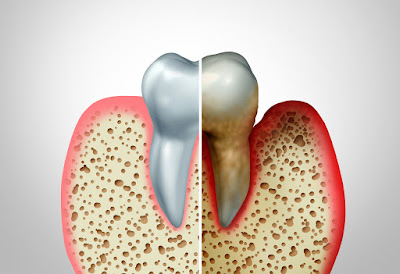What are the different types of dental implants?
Dental implants are required when there is a need for the replacement of a permanent tooth. This dental procedure can be expensive since titanium is the primary metal that is used in making dental implants. The expert dentist Epping has, help in screwing the dental implant to the tooth surgically.
What is a dental implant?
A dental implant is a dental care technique where the dental implant is attached to the teeth and fused with the jaw bone under Osseointegration. This dental technique has successfully replaced bridges and partial dentures, which is significant progress in modern dentistry for replacing the missing teeth. The dental implant the Dentist Epping NSW use can provide the same durability that the dental structure of the permanent teeth could provide. There are several other dental implant techniques as per the requirement. Let’s learn about them.
Types of implants
1. Artificial Bone augmentation
This dental implant is made of artificial bone that fits like a glove on top of the regular bone structure to provide support and foundation for the false teeth or denture. The dentist Epping has will restore the bone in your jaw if it fails to support the implants. There can be the use of bone additives to strengthen the bone.
2. Subperiosteal
In a Subperiosteal dental implant, the implants are customized by the dentist to fit it securely against the pre-existing bone in the oral cavity, covered by the gum. This procedure involves making room for a plate to get inserted. The plate is generally made of metal, which acts as a frame to be placed under the gum.
The gum around the plate heals to hold the plate in place. This procedure is performed on those patients who do not have enough jawbone on which the implant can be placed. A patient who does not qualify to through intensive oral surgery for the bone to be replaced is eligible for this dental implant.
3. Endosteal
In this type of dental implant, the implant is placed in the jaw area of the mouth. This works to enact as the natural root of a tooth. Endosteal is the most common dental implant procedure that can suit almost every patient with a good and healthy jawbone.
The implants are shaped like screws that can be put into the jaw that the false teeth are fitted onto. This procedure can take a little time to heal so that the implant can fuse with the gum to form a stronghold. After the gum heals, the false teeth can be placed onto the post to fit alongside the adjacent teeth.
4. Root Form
Root form dental implant is considered to be the most accurate form of denture that can relate to the actual size of the teeth and have various contours of the natural tooth. This procedure can be used to replace one or several teeth. If you require a complete set of teeth, a root-form dental care technique would be most appropriate.
5. Plate Form
Plate form dental implant is traditionally used in dental grafting. This technique can also be used in which there is a narrow presence of bone.
6. Zygomatic Implant
This technique is the least practiced dental implant since it has a very complicated procedure, and it should only be done if there are not enough jawbones to perform the Endosteal implant procedure. In this procedure, the implant is placed in the patient’s cheekbone instead of the jawbone.
7. Sinus Lift
In this technique, the bone is added below the sinus if the bone is decaying gradually because of missing teeth.
8. Ridge expansion
This procedure is used by the Dentist Epping has, so they can use graft material to a space created earlier on the top of your jaw. A ridge expansion is done if your jaw is not wide enough for the implants.
Hopefully, you now have gotten an idea about various dental implant techniques. You can contact Rawson Dental for further inquiry about any kind of dental issues.




Comments
Post a Comment